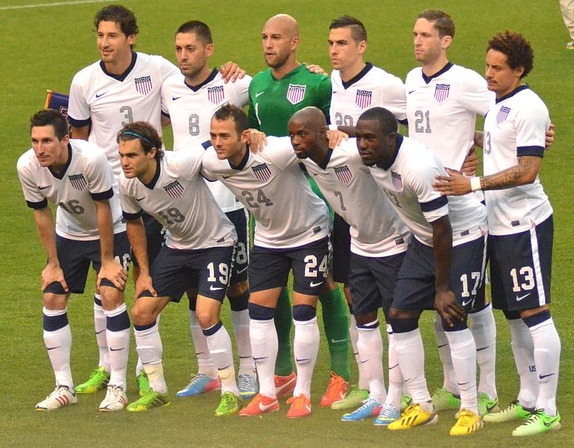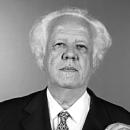
The right test, at the right time
MÁS EN ESTA SECCIÓN
Is the United States there yet? And if not, how much farther does it have to go?
Those are the same questions that have been asked before every World Cup since the United States returned to soccer's biggest stage after a 40-year hiatus.
The answers going into this summer's version in Brazil are the same since a bunch of college kids first brought America back in 1990.
No, the USA is not ready to legitimately challenge for the World Cup, but it is a heck of a lot closer than the last time someone asked.
Elevating a nation's status into the elite of international soccer is not like trying to win a Super Bowl, World Series, NBA championship or Stanley Cup.
In the history of the 19 FIFA World Cups, which was first played in 1930, only eight nations — Argentina, Brazil, England, France, Germany, Italy, Spain and Uruguay — have ever held up the championship trophy.
Czechoslovakia, Hungary, the Netherlands and Sweden are the only other nations to reach a World Cup Final.
Of the 76 Final Four spots, only 24 nations have ever claimed one, with South Korea in 2002 and, ironically, the United States back at the inaugural tournament being the only countries not located in Europe or South America.
This summer, the USA's chances of shocking the universe and winning are miniscule, competing with reigning World Cup champ and two-time reigning European champ Spain on an impressive run of major trophies. Not to mention five-time World Cup champion Brazil playing host and multiple World Cup champion Argentina, Germany and Uruguay fielding their best squads in a few cycles.
Still, just the idea that some analysts are giving the United States even a puncher's chance of advancing out of the Group G of Death, which also includes Germany, Portugal and Ghana, is a testament to the continued growing respect the USA is enjoying in international soccer.
When the sharks swimming in the water are megalodons, graduating up from minnow is an accomplishment in itself.
But as always, trying to figure out what would constitute a successful step in the growth of American soccer is complicated. So much of it cannot necessarily be tied to specific results.
Coming off the 2010 World Cup when the United States won a group for the first time since 1930, it is not unreasonable to think the Americans should be measured on a return trip to the knockout stage.
But England, Slovenia and Algeria in 2010 represented a manageable group for the USA; as easy as 2010 was, the 2014 group is as difficult.
Topping England for the group win was a surprise, but to have not advanced would have been an utter failure.
That would not hold true for Brazil.
The opening match against Ghana, which has knocked the USA out of the last two World Cups, is the only match in which the United States will not be a decided underdog.
A draw would not be a death-blow but an opening victory almost will be a must if the United States has aspirations to play more than three matches.
Yet, if Team USA finished with four points but still did not advance, it would be harsh to label things a failure considering the quality of the competition.
This, however, is the right test at the right time for the United States.
The challenge of moving out of a group like this should be embraced. Excuses should not be made before the first match is played.
At some point, the talk of moving up has to be replaced with results.
Elevating USA soccer is what manager Jurgen Klinsmann, who won a World Cup with Germany as a player and later managed it to a third-place finish, was hired to do.
The previous five USA coaches qualified for World Cups. Klinsmann is supposed to deliver more.
In December, Klinsmann was given a contract extension through the 2018 World Cup. His role as technical director may be more important to the long-term growth of USA soccer.
"We want to show the players, we want to show everyone involved in the game here that there is a plan in place, there are ideas in place," Klinsmann said, "but that it will also take time to break through, to develop, to educate.
"This is not just a process that depends purely on the result of the World Cup."
Again, it is complicated.
Klinsmann is organizing USA soccer from the youth program on up to operate more like the high-quality nations.
It is the only hope for significant growth.
Major League Soccer is improving as a domestic league and the implementation of youth academies run by franchises like the Philadelphia Union will be vital in identifying and developing young American prospects.
Klinsmann is tapping into the melting pot that is the strength of America by convincing prospects with dual citizenship like Aron Johannsson (Iceland), Joe Corona (Mexico/El Salvador), Timothy Chandler (Germany), Fabian Johnson (Germany) and Julian Green (Germany) to commit to the USA Senior Team.
In terms of overall talent and depth, USA soccer has never been at a higher point.
Still, the reality is that it might never be possible for the United States to become a legitimate World Cup title challenger.
England is credited with inventing the modern sport yet has won just one World Cup and no European Championships.
Mexico, which played its first international match in 1923, has the passion for the game that rivals any nation but has never moved above third-tier status.
In the end, it always comes down to talent.
Because of the popularity of football, basketball, hockey, baseball and other sports in the United States, no nation has its elite athletes pulled in so many different directions.
Had LeBron James (NBA), Mike Trout (MLB), Patrick Kane (NHL), LeSean McCoy (NFL) and most other great American athletes been born and raised some place like Brazil, Italy or Germany, they would have turned their athletic abilities almost exclusively toward soccer.
It's hard to win a World Cup when your Neymar (Brazil), Lionel Messi (Argentina), Cristiano Ronaldo (Portugal) or Wayne Rooney (England) is probably playing football, basketball, hockey or even lacrosse instead of soccer.
So, no, the United States is not ready to win a World Cup, but it is closer. The trick? That is how it may always be.






DEJE UN COMENTARIO:
¡Únete a la discusión! Deja un comentario.